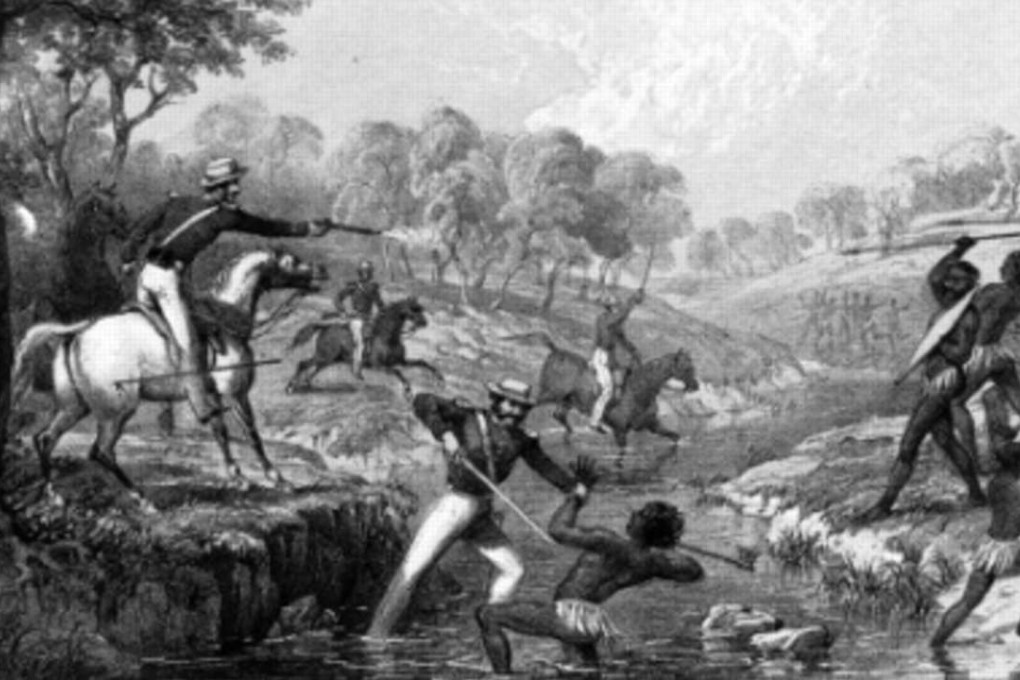Book review: Thicker Than Water looks at Australia’s genocidal past
A descendant of the leader of a gang that massacred 80 to 100 Aborigines in Gippsland in 1843 returns to the scene of the crime to confront the ugly truth


by Cal Flyn
William Collins
4 stars
In 1843, at Warrigal Creek in the south-eastern corner of Australia, known as Gippsland , between 80 and 200 Aborigines – a significant portion of the Bratowoolong clan of the Gunai people, including children – were massacred by a vigilante gang of white drovers calling themselves the Highland Brigade. The Aborigines were surprised in their encampment on the banks of a waterhole. There was nowhere for them to run; those who tried to flee were gunned down in the water. Afterwards the Scotsmen pulled a 12-year-old boy, who had been shot through the eye but was still alive, from the creek, and marched him on ahead at gunpoint in search of further camps.
There were other murders, at Boney Point, Butchers Creek, Slaughterhouse Gully – the names are grotesquely eloquent. When the first European settlers arrived in Gippsland, 1,800 Aborigines lived in the area that had been their ancestral home for some 20,000 years; by 1854, only 126 remained, mirroring a nationwide pattern that led later historians to conclude that Aborigines had, in the words of John La Nauze, been little more than a “melancholy anthropological footnote” to the continent’s history.
The leader of the Highland Brigade and the first European to open up the region, Angus McMillan , was himself the survivor of a ruthless campaign of dispossession. He had left for the colony of New South Wales in 1837 to escape the terror of the Highland Clearances, in which thousands of his fellow Scots were evicted from their tenancies during Scotland’s agricultural revolution. McMillan is still celebrated in his native Skye and in Australia – where he is honoured with cairns and plaques – as a pioneer, a man of great personal integrity and a pillar of settler society. The diary he kept during his passage, in which he records his resolution to be “humble, meek, diligent and industrious, charitable even of aliens”, makes for pathetic reading. For as Cal Flyn – who is a collateral descendant of McMillan’s – reveals, he is equally deserving of the alternative title given to him by the aboriginal community: “the Butcher of Gippsland”.